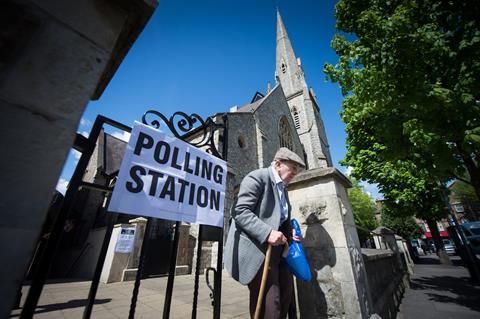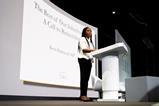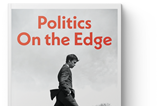The issues that matter to Christians do not map neatly onto one political party, according to recent research by the Evangelical Alliance. Could not voting ever be the best option for believers? Dr Pat Finlow explores

The Christian call to engagement in the forthcoming General Election was thoughtfully made by James Mildred in these pages a few days ago. And it was encouraging to read that Christians take this responsibility very seriously, especially when it comes to voting, as they prayerfully consider the pros and cons of each party’s policy positions.
But for some, this responsibility comes with a dilemma: If they vote for a party because they support some of their policy positions, does their vote also make them culpable for decisions made by that party with which they profoundly disagree? Would it be better, in that case, not to vote at all and keep a clear conscience?
While I recognise the heartfelt concerns expressed by this perspective, I disagree (agreeably I hope!) with the suggestion that not voting is a viable way to resolve this particular conundrum.
A call to more
Rather, I’d like to propose an alternative - and hopefully more productive - approach to this dilemma. To see it as an opportunity to bring biblical wisdom into politics.
Could we instead use the conflicting feelings we may have about a party as an opportunity - and even a spur - to speak up and act for kingdom values?
Armchair activism has never brought about serious change
What if we were to turn the ’vote or not vote’ issue on its head and consider another option: Vote AND…
Vote AND contact the candidate for whom you voted, saying why you did, but also expressing your reservations about other issues. Perhaps outlining what would make your longer term support more or less likely.
Vote AND connect with other Christians in your church or local community who feel similarly so you can pray and act together.
Vote AND campaign about or advocate for the broader issues that matter to you.
Vote AND connect with organisations that are already working for change in the areas you are concerned about. How can you support them in prayer, financially or practically?
Vote AND contact one of the Christian organisations affiliated with the political parties to find fellow travellers and discuss your concerns. You can find links to the Conservative Christian Fellowship, Christians on the Left and the LibDem Christian Forum on the Christians in Politics website.
Finally, why not Vote AND join the party you are voting for and affect change from within?
Get involved
There is often a tendency to tut loudly, rant at the TV or moan with our mates if we disagree with something in politics. But armchair activism has never brought about serious change. That won’t happen unless and until people like us get involved.
It is frequently said in Christians in Politics: “Decisions are made by those who show up”. If we don’t show up - whether to the voting booth or in policy debates - other people (who possibly do not share our values) will be making decisions on a whole range of issues that affect us and those we care about.
Many years ago, John Wesley famously said: “Do all the good you can, by all the means you can, in all the ways you can, in all the places you can, at all the times you can, to all the people you can, as long as ever you can.”
Decisions are made by those who show up
History teaches us that improvements in society and in people’s living and working conditions often came about when Christians joined together and began to influence public opinion, local and national leaders. Think of William Wilberforce, Rev Dr Martin Luther King, Archbishop Desmond Tutu, Elizabeth Fry, the Cadbury family, Lord Shaftesbury and so many more.
Why not us, now? The loving and committed involvement of churches in social action projects up and down the country has become increasingly recognised and valued by many in local and national government.
There has never been a better time for Christians to apply the wisdom and insight they have learned through these endeavours to policy debates for the common good.






































No comments yet